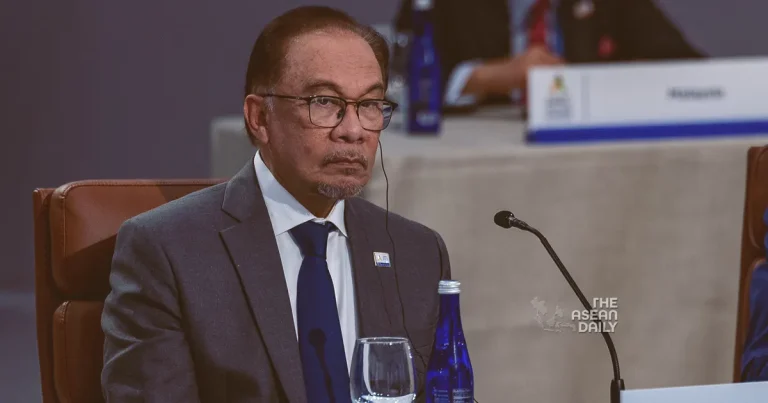4-6-2024 (KUALA LUMPUR) Malaysia’s Prime Minister Anwar Ibrahim finds himself in a precarious position as the specter of several by-elections looms large in Malay-majority constituencies that his ruling coalition had lost in recent polls. These potential by-elections could deprive him of the coveted two-thirds super-majority in Parliament, further complicating his already delicate political landscape.
The leading opposition party, Parti Pribumi Bersatu Malaysia (Bersatu), has declared the memberships of six rogue MPs void after they failed to retract their support for Datuk Seri Anwar within a 14-day notice period that ended on May 31. This decision has put the Speaker of Parliament, a close ally of Mr. Anwar, in a difficult position.
The Speaker, Johari Abdul, must now choose between two unenviable options. He can either declare the wards vacant under the anti-party hopping law (APHL), thus triggering by-elections, or decide that the as-yet untested legislation, which took effect on October 5, 2022, does not apply in this case.
Bersatu has stated that it will write to the Speaker when Parliament reconvenes on June 24, informing him of the rogue MPs’ failure to declare their allegiances by the May 31 deadline.
Observers believe that Tan Sri Johari, a former top official in Mr. Anwar’s Parti Keadilan Rakyat (PKR) before assuming the parliamentary position, finds himself caught between a rock and a hard place.
Should Tan Sri Johari refuse to declare vacancies for the seats, thus averting by-elections, it would not only undermine the APHL – a law that the ruling Pakatan Harapan (PH) alliance lobbied hard to implement before the November 2022 general election – but also the commitment to reforms pledged by Mr. Anwar’s multi-coalition government. This would further fuel critics’ accusations of double standards and hypocrisy against the PH, given the Anwar administration’s perceived failure to deliver on promised reforms, such as equal constituency allocations, reviewing key appointments to institutions like the anti-graft agency, and broadening freedom of speech.
However, with state polls and other by-elections since the general election showing ebbing support among the crucial Malay majority, analysts believe that keeping the Bersatu rebels in their seats will be the priority, given the lion’s share of the electorate in these areas who are Malay.
“So what if the APHL is rendered useless? The political cost is higher if they get thrashed in the by-elections,” independent political risk consultant Adib Zalkapli said.
Mr. Anwar currently has the backing of 153 members of the 222-strong Parliament. If Bersatu retains all six federal seats, it would not only bring the government below the two-thirds mark of 148 but would also further cement the administration’s inability to recover Malay voter support.
Bersatu president Muhyiddin Yassin declared on June 1, “According to Article 10.4 of Bersatu’s Constitution, non-compliance by Bersatu elected representatives on any instruction issued by the Supreme Council is akin to terminating their memberships immediately.”
Former Selangor Bersatu chief Abdul Rashid Asari was also a non-respondent, having earlier declared his support for Selangor Chief Minister Amirudin Shari, a former PKR vice-president.
The APHL states that a seat will be vacant if the incumbent is no longer a member of the party under which they were elected, save if they were expelled or the party ceases to exist. Bersatu amended its Constitution in March so that a refusal to abide by party directives would be tantamount to leaving the party.
In response to Mr. Muhyiddin’s declaration, Gua Musang MP Azizi Abu Naim – one of the Bersatu elected representatives who declared their support for Mr. Anwar – has raised questions about the legitimacy of the notice sent to them by the party to declare their stance.
Analysts, however, believe that Mr. Azizi’s argument “does not hold water,” as the idea of ‘ceasing to be a member’ is designed to remove discretion and ensure a clear consequence for specific actions.
Should by-elections be held, it would be a messy process for Mr. Anwar’s allies. The Premier may have to allow the turncoats a chance to defend their seats to avoid the embarrassing situation where they recant their support for him. While the Bersatu rebels could contest as Umno candidates, the Malay party’s own warlords would surely make claims to all these seats, as witnessed in the recent heated debate among ruling parties over the May by-election for Kuala Kubu Baharu in Selangor.




